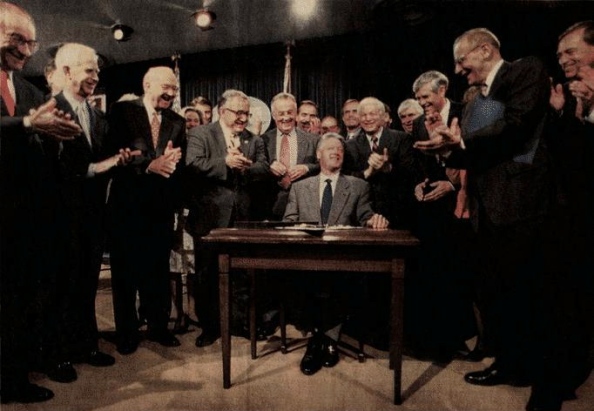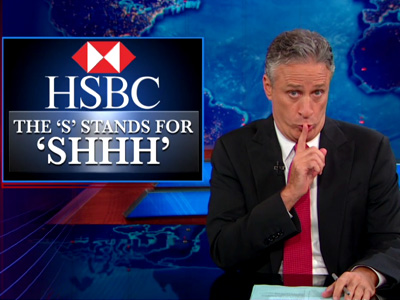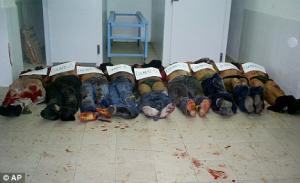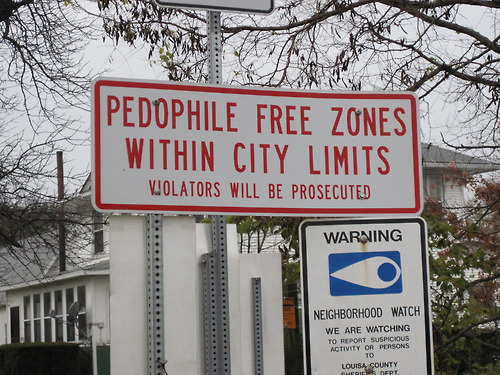Monday Newspaper Review - Irish Business News and International Stories
By Finfacts Team
Jul 11, 2005, 06:55
http://www.finfacts.com/irelandbusinessnews/publish/printer_10002530.shtml
The Irish Independent reports that a money-laundering racket uncovered by the gardai was used by the Provisional IRA to 'cleanse' at least �5m (�7.2m) in sterling notes from the proceeds of the Northern Bank robbery.
The extent of the racket was revealed last night as gardai worked closely with the PSNI to build up a case against the masterminds of the scam.
The massive investigation, which involves several national garda units, is being carried out alongside inquiries into the Belfast robbery in which the IRA got away with 38m.
Senior garda officers are satisfied that the cash traced and seized in their investigation is directly linked to the robbery last December.
A detailed picture of the money trail emerged last night as inquiries continued here and overseas:
Gardai seized 2.4m in used £20 notes stashed into holdall bags in the basement of a bungalow owned by Cork financier Ted Cunningham whose firm, Chesterton Finance Company, is alleged to have been used to help launder the cash.
Another £1.5m in new sterling notes went up in smoke when a man in Passage West burnt the cash in his fireplace after the scam organisers panicked because they feared the new notes could be traceable.
The remaining �1.1m was identified in the paper trail across a series of financial institutions and has either been seized or spent.
Gardai recovered almost £0.5m of the latter tranche when they were either contacted by businessmen or raided houses or business premises in Cork city, Douglas, Millstreet, Co Cork; Killarney and Rathmore, Co Kerry; Tullamore, Co Offaly; and Dunboyne, Co Meath.
Detectives also seized £93,000 in a Daz washing powder packet after searching a jeep at Heuston rail station in Dublin. Gardai surrounded the jeep on the afternoon of February 16 after an intelligence tip-off resulted in the monitoring of two Derry men who travelled to Dublin in the vehicle to meet a suspected republican, who had travelled from Cork.
Gardai allege that the money had previously been taken south from Derry in sterling to be 'laundered', and was being handed back in 'clean' euro notes when it was seized.
At that stage, the garda investigation had already been under way for about nine weeks and the intelligence about the meeting in Dublin forced officers into moving against a number of suspects at the centre of their inquiries.
Apart from raiding Cunningham's home in the village of Farran, 10 miles outside Cork city, gardai detained two other men and a woman - including a Sinn Fein activist who had been a former councillor and party election agent.
But from a total of seven arrests, only one person has so far been charged and he is now awaiting trial on accusations of being a member of an illegal organisation.
Last month, the PSNI carried out a series of raids in Derry and seized more than �30,000 in 11 searches of houses and businesses; while a related raid was carried out by gardai in Co Donegal.
The Northern Bank estimates the IRA made off with about �9.9m, but the rest of the missing money has not yet surfaced.
The money trail has also led overseas, and gardai have made visits to Britain and to Bulgaria where an Irish-based company had intended to invest in property.
A number of bank accounts had been set up by the company in relation to its legitimate investment plans following a visit to Sofia by an Irish delegation that included Ted Cunningham and Phil Flynn, a former vice president of Sinn Fein and senior trade unionist.
The Irish Independent also reports that Cognotec, the foreign exchange trading software group headed by Brian Maccaba, lost $4.9m in 2003 to take its accumulated deficit to $91.65m, the latest accounts show.
The huge accumulated losses meant that the company's liabilities exceeded its assets by $915,785, causing auditors Ernst & Young to warn that this balance sheet situation may require the convening of an extraordinary general meeting.
"The balance sheet shows an excess of liabilities over assets and, in our opinion, on that basis there did exist at 30 November 2003, a financial situation which under Section 40 (1) of the Companies (Amendment) Act 1983 may require the convening of an extraordinary general meeting of the company," the auditors noted.
According to the financial statement, the accounts were prepared on a going-concern basis as the directors believe current working capital is sufficient to meet the needs of the company until positive cash flow is generated.
Turnover for the year to November 30 2003 was $12.6m, down from almost $15m the previous year.
Staff numbers dropped from 91 in 2002 to 57 in 2003.
The average staff cost is $8,294.
Directors' remuneration shot up by 88pc in the period to $552,285, although it is unclear how many directors were paid in 2003, as four directors resigned that year.
The Maccaba-headed company paid corporation tax of $326,366 in the period but a note in the accounts shows it had a tax loss carried forward at year end of $80.4m. The group had debts of $11.55m, according to the accounts.
Maccaba, one of the highest profile Irish businessmen during the tech boom at the end of the nineties, hit the front pages for all the wrong reasons last year. He lost a case against a London rabbi over lurid allegations about his private life.
During what became known as the 'Indecent Proposal case' - echoing the plot of the Hollywood film starring Robert Redford - Mr Maccaba had accused a rabbi of spreading "poisonous" allegations that he was a "sexual predator" and "serial adulterer" who chased after young married Jewish women.
The entrepreneur is thought to have been hit with legal costs of nearly �3m, the longest slander case in legal history.
Maccaba founded Cognotec in Dublin in 1991 and the company has raised about $90m from international investors, including SoftBank and Warburg Pincus.
The Irish Times reports that Dublin solicitor Brian O'Donnell has emerged as the preferred bidder for a �115 million (�167.43 million) office property in London's docklands, less than four months after he spent �135 million on a neighbouring development.
Mr O'Donnell, a former managing partner of William Fry, and his wife Dr Mary Patricia O'Donnell were told late last week that they had beaten off a number of other wealthy bidders, including at least two Irish businessmen, to win control of 17 Columbus Courtyard in Canary Wharf.

The 18,600 square-metre office building is currently occupied by investment bank, Credit Suisse First Boston on a letting agreement that has another 23 years to run.
The occupancy yields about �6.5 million each year in rent.
Mr O'Donnell, who was advised on the deal by the corporate finance team at Deloitte in Dublin, will buy the property from the Canary Wharf Group.
He is thought to have submitted a highly-leveraged bid that could see him put down less than �20 million of his own funds.
His status as preferred bidder means he has been selected ahead of at least four other would-be buyers.
These are thought to have included two prominent Irish businessmen who were respectively advised by Bank of Ireland Private Banking and KPMG.
Other interested parties included a Middle Eastern consortium and a teachers' pension fund from the US.
The Columbus Courtyard is just the second building to be sold off by Canary Wharf since the group was taken private by Morgan Stanley's Songbird consortium a year ago.
Mr and Mrs O'Donnell bought the first such property, 15 Westferry Circus, in March just days after the British Chancellor, of the Exchequer Gordon Brown, abolished stamp duty in "deprived" areas, including Canary Wharf.
Stamp duty could previously have been charged at 4 per cent of the purchase price.
The yield of about 5.5 per cent that the O'Donnells will draw from the Columbus building marks a decline from the 6.2 per cent that came with 17 Westferry Circus, with the fall linked to the downward movement in UK swap rates in the interim.
The 17 Columbus Courtyard property was built in 1998 and has been occupied by Credit Suisse First Boston from the start.
The Irish Times says that Taoiseach Bertie Ahern successfully fought off moves to harmonise European tax rates in the troubled draft constitutional treaty for the European Union (EU).
But a new battle on taxation may now be looming after the Austrian Chancellor Wolfgang Schuessel suggested that the EU could part-fund its budget with a levy on international financial transactions.
Such a tax is unlikely to find support on Merrion Street. It would hit Ireland harder than most EU members, given the very high level of international transaction in the IFSC in Dublin.
Yet Mr Schuessel, who takes over the EU's rotating presidency at the end of this year, said said it should not continue to be the case that "every euro that we need for [ the EU] is drawn from national budgets".
Interviewed in the German newspaper Bild am Sonntag, he said fundamental budget reform was required to that provide the EU with its own source of cash.
"I suggest there should be an automatic financing mechanism for part of the EU budget - for example through taxation of international financial transactions," he said.
About half the EU's budget, worth �106.3 billion in 2005, is paid for by contributions from member states based on their gross national product (GNP). The rest comes mainly from levies on agricultural imports and customs duties and VAT .
EU leaders meeting in Brussels last month failed to agree on the bloc's 2007-2013 funding and Mr Schuessel said budget talks were becoming "ever more brutal". He warned that if the EU was not given its own source of cash, there would be an "unprecedented scrap over distribution".
His proposal for a tax on international transactions similar to one made by French President Jacques Chirac to help fight Aids.
The Irish Examiner reports that recruitment activity remained buoyant in the second quarter of the year, Bank of Ireland said yesterday.
The bank said the level of job advertising in the three months to June was 6% ahead of the same period last year and the retail and professional sectors were particularly strong.
Chief economist Dan McLaughlin said the demand for labour continued to grow strongly and immigration was playing �a key role� in filling the gap between demand and Irish-based supply.
�Ireland is at full employment and this pace of job creation is significantly outstripping the growth in the indigenous supply of labour, so the balance can only be met by tapping into the excess supply of labour available across the EU,� said Dr McLaughlin.
Job ads in the financial sector were 48% ahead of the same quarter last year, while ads placed by retailers were 35% higher.
There were 20% more professional jobs on offer, but slowdowns were recorded in construction, information technology and manufacturing, where job ads were down by around 15%.
The Irish Examiner also reports that Irish people who regularly buy goods and services over the internet believe it is a relatively safe method of shopping, according to a new EU survey.
Just over 2% of customers who made purchases online experienced difficulty in obtaining redress or repair following an initial complaint.
Some 3.6% of respondents said they were annoyed that delivery costs were higher than anticipated, while 3% complained that suppliers failed to provide a satisfactory response to a complaint.
Only 1.4% of e-shoppers in Ireland expressed concern about a lack of security with regards to payment over the internet with just half that number experiencing fraudulent use of either credit or debit cards.
The most frequent complaint by Irish internet users was the fact that delivery times were longer than promised a fault experienced by almost 7% of those who bought goods online.
The Financial Times reports that European Union (EU) regulators have expressed concerns that any US government decision to prosecute the US business of KPMG, one of the big four accounting firms, could badly damage the already-concentrated audit market.
The regulators have stopped short of demanding that the US government refrain from bringing criminal charges against KPMG for past tax work but they do not want to see the number of big accounting firms falling to three.
Arthur Andersen, once the world's biggest accounting firm, collapsed after the US justice department brought criminal charges against its US partnership in 2002.
KPMG could suffer a similar fate if the department presses criminal charges against its US partnership over past sales of tax avoidance products to clients.
A decision is expected soon but the justice department and KPMG declined to comment.
KPMG, Deloitte, Ernst & Young and PwC dominate the auditing of multinational companies.
Since Andersen's demise, regulators have often expressed concerns about the high concentration of the audit market and the lack of choice big companies have.
European regulators accept they cannot interfere with the US justice department's decision on KPMG but they are concerned about the potential consequences.
An official at the European Commission said: "It was already an issue going down to four big accounting firms. Obviously, having only three would be an even bigger problem."
Some European regulators have relayed their concerns about the potential consequences of the KPMG case to their counterparts in the US.
Andersen's international network of accounting businesses disintegrated after the justice department pressed obstruction of justice charges against its US partnership, which had been auditor to Enron, the energy company that collapsed in 2001.
The US Justice Department's investigation into KPMG's US business focuses on sales of tax avoidance products to clients between 1998 and 2002.
Last month KPMG admitted some former partners had engaged in unlawful conduct during that period.
The Financial Times also reports that at the end of a shortened, dramatic trading week, shares on Wall Street went out on high after good economic news prevailed over terrorist attacks and surging oil prices.
With no trading on Monday because of the Fourth of July holiday, oil prices, spurred on by a vicious hurricane season that threatens the country�s oil supplies, continued to be of major concern on Wall Street.
Positive data on unemployment and consumer confidence coupled with some strong figures from the US earning season helped the markets to weather the storm and all three indices rose more than 1 per cent on Friday.
Friday�s data showed from the Labor Department showed that US employers added 146,000 jobs in June. This was below Wall Street forecasts, but the unemployment rate fell to its lowest since September 2001, a government report showed. �What we have seen is a tug of war between politics and corporate fundamentals,� said Quincy Krosby, chief investment strategist at The Hartford.
One such corporate fundamental was the gains made by Alcoa, the world�s biggest aluminium maker, that on Friday posted the best quarterly profit in its history. Its shares gained 4.3 per cent on Friday, taking it to $27.20. Over the week it was up 4.1 per cent.
By the close, the Dow Jones Industrial Average had climbed 1.4 per cent to 10,449.14 and the broader S&P 500 was up 1.2 per cent at 1,211.86. The technology heavy Nasdaq gained 1.8 per cent, taking it to 2,112.88.
Since the close of trade last Friday the Dow was up 1.4 per cent, the S&P 1.2 per cent and the Nasdaq 1.8 per cent.
The recovery makes for a striking contrast with other recent atrocities that sent markets reeling and showed traders now fully �price in� terrorism. While the markets recovered in one session from the London blast, it took the S&P 500 more than two years to recover to its pre-September 11 levels. It took 14 session to recover from the Madrid blasts.
The market was helped in its swift recovery, said Ms Krosby, in part because of the impressive show of resolve by Tony Blair and George Bush and because of strong underlying consumer and economic news.
One of the most striking comebacks of the week was by the airline industry, which was badly hit by the double whammy of an oil spike and a terrorist attack but still managed to rally. The Amex Airline index was up 1.8 per cent at 48.03. Delta shares rose by 3.6 per cent on Friday after its share price plummeted in the wake of the news from London. However, it was still down 6 per cent over the week, finishing at $3.50.
The tourist sector also made a comeback with the Marriott International hotel group up on last Friday by1.2 per cent at $69.49. The cruise operator Carnival also recovered after Thursday, and ended the week virtually unchanged at $54.74.
Ms Quincy said the continued good health of America�s shoppers had also helped to lift markets.
�The consumer confidence figures and the good retail sales showed that, despite higher prices at the pump, the US consumer is still alive and well,� he said.
Wal-Mart, the world�s biggest retailer, certainly had a good week with shares up 3.4 per cent at $49.90. The company was helped by an announcement on Thursday that its June same-store sales rose 4.5 per cent, helped by seasonal merchandise such as air conditioners and summer clothes.
Shares of Gap were up 5.8 per cent at $20.97 and Target advanced 4.3 per cent, to $56.93.
By mid-week, Exxon was among the biggest drags on both the Dow and the S&P 500, falling 1.7 per cent to $59.11 on Wednesday. However, it finished 1.9 per cent up from the previous week at $59.40.
The most dramatic gains of the week came from a group of little-known specialist security companies that saw their shares leap on the terrorist news from London.
Ipix and Digital Recorders, two companies that make surveillance devices, both saw their share prices jump on the news of the London attacks. Ipix soared 23.7 per cent on the day before finishing the week 2.8 per cent higher at $2.90.
Wolfgang Munchau in the FT, under a headline Europe must tackle terrorism, writes:
We do not know the next target of the terrorists after Madrid and London. Maybe Rome, where prime minister Silvio Berlusconi will be facing an election next year. Or maybe Copenhagen. The Danish government also helped US President George W. Bush in the war against Iraq. But the surprise of the timing of the London attack reminds us that the terrorists do not usually behave as we expect them to.
The French and Germans also have reason to fear that Paris and Berlin, too, may be future targets despite their governments� opposition to the Iraq war.
But even if we have no clue where the al-Qaeda network will strike next, we know they operate on a pan-European level. After September 11, al-Qaeda has focused increasingly on the Middle East and Europe, which are today far more vulnerable and less prepared to cope with terrorist attacks than the US.
One reason is the way the European Union has chosen to organise the fight against terrorism. Anti-terrorism is not the business of the EU and its institutions. Europol, the EU�s nascent police services, has extended its official remit to include anti-terrorism. But it hardly matters. The fight against terrorism has remained primarily the job of national agencies, intelligence services and police forces. They were set up at a time when the main terrorist threat in Europe was indeed national � the IRA in the UK, Eta in Spain, Baader-Meinhof in Germany or the Red Brigades in Italy.
The trouble is that the al-Qaeda terrorists are thinking more European than Europe�s national anti-terrorism agencies. It is therefore a legitimate question to ask whether our present institutional set-up is still appropriate. Or rather, whether it is the best conceivable system we could think of, whether we would reinvent it in this manner if it did not exist today.
The answer to all these questions is an emphatic No. If we had to build a new system from scratch, we would not establish independent national systems in each country. After the Madrid bombings last year, the EU only went so far as to set up an embryonic anti-terrorism unit, headed by the Dutchman Gijs De Vries, the European co-ordinator for counter-terrorism.
As his title suggests, the main job at EU level is co-ordination. It is essentially a bureaucratic agency, very much the kind of thing one would expect the EU to do. Mr De Vries is not the head of a European Central Intelligence Agency. He has no agents in the field. His job is to provide a bird�s-eye view analysis of terrorist threats in Europe.
There has been some good progress in bringing together national security and anti-terrorism analysts as part of Mr de Vries�s activities. The European arrest warrant and the setting up of joint investigation teams of national police forces were also helpful.
While the EU has a limited role in intelligence analysis, it has no operational responsibilities. The defenders of the status-quo always say there already exists a great deal of co-operation between the national security services, on a �need-to-know� basis, mostly bilaterally or trilaterally. We are assured � and have no reason to disbelieve � that this system works reasonably well. The agencies have apparently prevented several deadly attacks. One case we know of occurred in December 2001 when French and German police foiled a terrorist attempt to blow up the Christmas market in Strasbourg.
Despite these successes, it is doubtful that this is the best the EU can do. Richard Falkenrath, a former White House adviser on homeland security, has argued that the EU should tear down the wall between military intelligence and civil law enforcement.
The EU is the natural level at which to base an effective homeland security agency, comprising an analytical and an operation arm.
>The reason is that the EU has become a deeply integrated political and economic area. In the so-called Schengen area, citizens enjoy passport-free travel. Travelling to the non-Schengen parts of the EU is not difficult either. In such an area it would be nonsensical to have different standards of airport security or different national systems for the protection of the EU�s external borders.
You might say that this is politically impossible. After all, national security is at the heart of national sovereignty. But this is not how the EU�s citizens see it. Opinion polls � even in eurosceptic Britain � suggest a large majority want the EU to fight terrorism. They no longer believe that national governments can deliver the appropriate level of security in the EU.
This is the fundamental trouble with the EU. It does what it should not be doing, such as running discriminatory agricultural price support systems, while it does not what it should be doing, such as fighting terrorism and providing security.
We have all marvelled at the stoicism and defiance of Londoners in the aftermath of Thursday�s attacks. But it is not our attitude that will defeat terrorism. It is the way we organise the fight. We should have had a fundamental debate about the effectiveness of our anti-terrorism systems after the Madrid bombing last year. We urgently need it now.
The New York Times reports that Goldman Sachs and Allianz of Germany are in talks to acquire a $1 billion stake in China's largest state-owned bank, the Industrial and Commercial Bank of China, according to a person briefed on the discussions.
The talks come at a time when some of the world's biggest financial institutions are rushing into China to acquire stakes in some of the country's large but troubled state-owned banks ahead of planned initial public offerings in the next few years. The Bank of America said last month that it would pay $3 billion for a 9 percent stake in the nation's third-largest lender, the China Construction Bank, which is expected to offer shares to the public late this year.
And UBS said last month that it was considering investing as much as $500 million in the Bank of China, another huge state-owned bank.
"All the big financial institutions want a piece of the action," said Jack J. T. Huang, who oversees China coverage for the law firm Jones Day in Taipei, Taiwan. "This is not necessarily a rational decision when you look at the numbers. But these institutions believe the government won't allow these banks to fail. They will step in to help them succeed."
I.C.B.C. has nearly 400,000 employees, more than 100 million customers and about $500 billion in assets. It is unclear how large a stake in the bank Goldman and Allianz may get. The negotiations were reported by the South China Morning Post in Hong Kong on Saturday.
Goldman and other large investment banks may be positioning themselves to help take the banks public in the next few years in deals that could result in hundreds of millions of dollars in investment banking fees.
Citigroup was initially expected to help take China Construction Bank public, but bankers said that deal is now likely to be handled by Morgan Stanley and its Chinese joint venture partner, the China International Capital Corporation, after Citigroup passed on buying a stake.
But the huge investments could be risky for some of the financial institutions because China's banking system has been struggling for years with massive debts, poor management and deep-rooted corruption.
The Chinese government has consistently stepped in to help bail out the banks. For example, it injected $45 billion into the China Construction Bank and the Bank of China in 2003. And analysts say the government is determined to revitalize the nation's banking system as it prepares to open the market to foreign banks.
I.C.B.C. is one of the most troubled. For years, the bank has racked up bad loans tied to poorly operating state-owned enterprises. It has also been plagued by corruption. In the past year, more than 350 I.C.B.C. officials were punished after an auditor found over $800 million in irregularities at the bank. Some bank officials were arrested on charges of trying to steal about $900 million.
The bank has also been a victim: a private company used forged documents to borrow nearly $900 million from the bank, according to reports in state news outlets.
But analysts say the government has pressed the big financial institutions to help clean up the banking system by taking sizable stakes in the four largest state-owned banks, which also include the Agricultural Bank of China.
Goldman Sachs and Morgan Stanley - considered the two most powerful foreign investment banks in China - have each purchased a substantial number of bad loans from China's financial institutions.
Goldman, J. P. Morgan Chase and I.C.B.C. have also teamed up to agree to loan about $9 billion to the China National Offshore Oil Corporation, one of China's largest state-owned oil companies, if it succeeds in acquiring theUnocal Corporation, an American company. The Chinese oil company, known as Cnooc, is in a bidding war with Chevron over Unocal, and Goldman and J. P. Morgan are Cnooc's financial advisers in that effort.
Indeed, Goldman has moved aggressively in recent years to strengthen its operations in China and solidify its ties to the government in the expectation that the country could some day be a source of billions of dollars in profits.
Henry M. Paulson Jr., Goldman's chairman, has made dozens of trips to China in recent years. And last year, Goldman agreed to donate $67 million to the government to bail out a Chinese brokerage firm.
Goldman then got approval to form a joint venture that could operate in China's domestic securities market. Altogether Goldman's investment in the joint venture is expected to top $200 million in the first few years.
Goldman has ample money to invest in a deal now. It finished raising $8.5 billion in April for Goldman Sachs Capital Partners V, one of the largest investment funds created this year.
The NYT says that banner ads, the Internet's favorite petri dish, have begun yet another round of experimentation, this time as shopping assistants.
Late last month, Chitika (pronounced CHIH-tih-ka), an advertising company based in Marlborough, Mass., began testing eMiniMalls, a technology that scans a Web page, chooses a product the reader might be interested in, then displays banner ads that are miniature shopping comparison pages, with prices, product reviews and links to merchants.
Analysts and online executives say the idea may find a market if consumers can overcome their longstanding habit of ignoring anything that appears in a rectangular box toward the top of a Web page.
"I know it's interactive, and shopping search is a good idea, but it's still perceived as this thing, this space," said Gary Stein, an analyst with Jupiter Research, an online consultancy. "Banners just aren't all that great at attracting attention."
Chitika's unusual approach to banners is aimed at attracting attention. The ads, which are being tested by a handful of online publishers, including the college savings site Upromise.com, allow users to click on different tabs to view various features of a product without being whisked away to another site.
For instance, on a client's Web page that mentions MP3 players, Chitika could instantly send to the publisher a banner ad featuring iPods available at three different retailers. Next to the merchants' names and their prices, users could click on a tab to see brief product reviews, descriptions and quotes about iPods from selected online Web logs. Only when users click on a merchant's link are they taken to the retailer's product page for that item.
At that point, the merchant pays a fee averaging about $1, whether there is a purchase or not, to Chitika, which shares an undisclosed portion with Shopping.com, the product comparison site that feeds merchant and product data to Chitika.
Indeed, the affiliation with Shopping.com is one of two fairly strong factors that could help Chitika gain the attention of advertisers and publishers. Besides the ascendancy of shopping search engines, there is a growing appetite among publishers for so-called contextual advertising.
Online merchants and investors have grown fond of shopping comparison sites in the last year. Sites like Shopzilla, Shopping.com, Nextag, Pricegrabber and others were visited by about one-third of all active online users in the United States in May, according to Nielsen/NetRatings, an Internet consultancy. Those numbers will probably climb during the holiday season, when shoppers look to comparison sites for bargains and gift ideas.
Merchants, who typically pay to list their products on the shopping sites, report fairly good success in attracting customers this way. The resulting increases in shopping search revenues at Shopping.com and Shopzilla led to those companies being bought last month, when eBay acquired Shopping.com for $620 million, and E. W. Scripps, the media company, purchased Shopzilla for $525 million.
Google has helped invigorate the market for contextual ads, with its AdSense service. In that program, publishers devote a certain amount of space - typically near the bottom of the page - to text advertisements. Google scans the Web page and plugs in text ads for products that are somehow related to its content. When someone clicks on an ad, Google sends the publisher a commission.
AdSense has gained a huge following over the last two years among Web publishers, who particularly like that Google sells and places the ads on their behalf.
Chitika can offer the same benefits to publishers, while also offering them the ability to control what goes into the banner and, in the near future, when and how its banners can be displayed. For instance, they may opt to leave the Chitika ads aside until readers click on pages for which the publisher has been unable to attract high-paying advertisers. Or, they may block the listings of merchants who compete with the publisher's existing ad clients. Chitika clients may also eschew the banner format in favor of a square display.
According to Venkat Kolluri, Chitika's chief executive, a handful of mostly small publishers began testing the service in the last week of June, including bloggers, home decorating sites and a site offering money-saving advice. Mr. Kolluri said "several hundred" more publishers have applied to receive the ads - a process that requires no fees, and the insertion of only one line of computer code to pages on which the ads will appear.
Mr. Kolluri said early results suggest that people click on more than 1 percent of the eMiniMall ads they see, compared with the industry average of less than half of 1 percent for banner ads.
For now, the biggest publisher to sign up for the eMiniMalls is Upromise, which offers its members the ability to open a college fund with cash rebates they receive by shopping at certain merchants.
David Coppins, vice president of the online mall for Upromise, said his site would introduce eMiniMalls on the site's home page before the end of September. The eMiniMalls will feature only products from the site's 350 retail affiliates.
"I've been dying to do something like this," he said, "but it would've involved us changing our backend systems."
For now, Shopping.com will retain the rights to distribute its listings through Chitika, but Mr. Kolluri said he planned to solicit other shopping search engines, so the engines would be competing to offer the best terms to merchants.
Josh Wetzel, director of business development for Shopping.com, which is based in Brisbane, Calif., said Chitika's initiative could help Shopping.com increase exposure for merchants. "I definitely think it's got a future," he said. "It's taking the AdSense idea to the next step, and making it very specific to commerce."
Corey Jeffery, an analyst with Nielsen/NetRatings, said the concept was so close to Google's AdSense model, in fact, that Chitika "should keep an eye in their rearview mirror."
Google would not say if it might consider a similar offering, but even if it did not, others could be watching for the market's response to Chitika, Mr. Jeffery said.

































































































 His angle is that these celebrities should be excused because they lived a ‘hedonistic’ lifestyle where young girls threw themselves at ‘celebrities’ but they “never asked for anybody’s birth certificate”. The truth is Clifford is acting as the establishment’s buffer in an attempt to assuage guilt from the echelons of high society. Meanwhile, ‘acting operations manager Jon Bird said witnesses claimed Savile had an “inner-circle” — some working on Top of the Pops, the long-running BBC show that helped make him a household name.’
His angle is that these celebrities should be excused because they lived a ‘hedonistic’ lifestyle where young girls threw themselves at ‘celebrities’ but they “never asked for anybody’s birth certificate”. The truth is Clifford is acting as the establishment’s buffer in an attempt to assuage guilt from the echelons of high society. Meanwhile, ‘acting operations manager Jon Bird said witnesses claimed Savile had an “inner-circle” — some working on Top of the Pops, the long-running BBC show that helped make him a household name.’

























